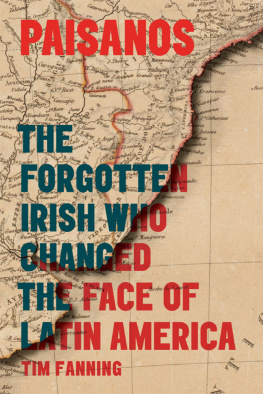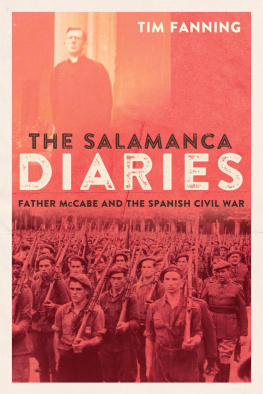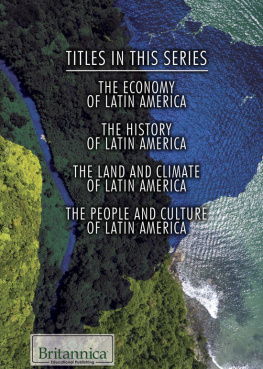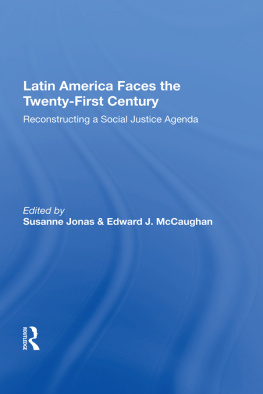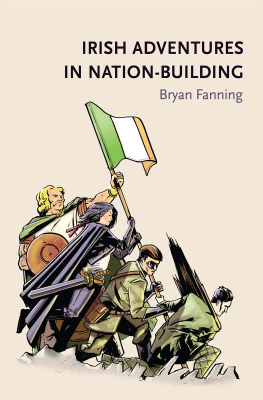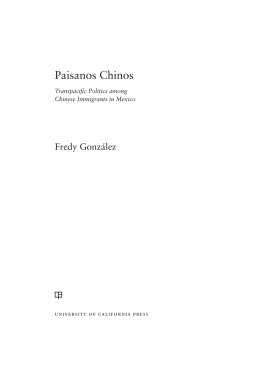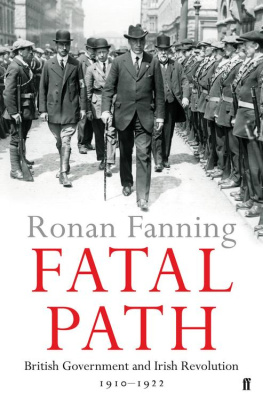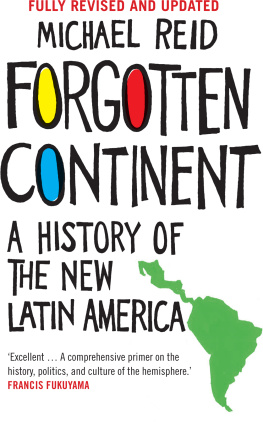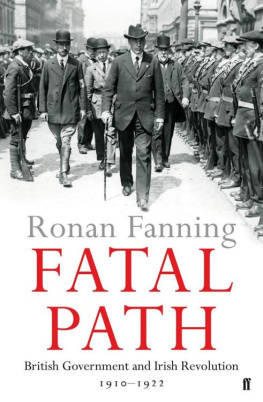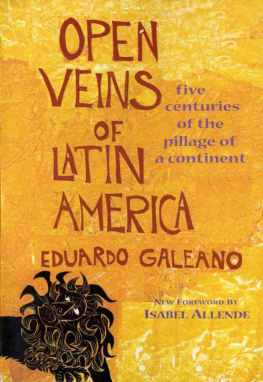Tim Fanning - Paisanos: The Forgotten Irish Who Changed the Face of Latin America
Here you can read online Tim Fanning - Paisanos: The Forgotten Irish Who Changed the Face of Latin America full text of the book (entire story) in english for free. Download pdf and epub, get meaning, cover and reviews about this ebook. year: 2016, publisher: Gill, genre: Politics. Description of the work, (preface) as well as reviews are available. Best literature library LitArk.com created for fans of good reading and offers a wide selection of genres:
Romance novel
Science fiction
Adventure
Detective
Science
History
Home and family
Prose
Art
Politics
Computer
Non-fiction
Religion
Business
Children
Humor
Choose a favorite category and find really read worthwhile books. Enjoy immersion in the world of imagination, feel the emotions of the characters or learn something new for yourself, make an fascinating discovery.
- Book:Paisanos: The Forgotten Irish Who Changed the Face of Latin America
- Author:
- Publisher:Gill
- Genre:
- Year:2016
- Rating:3 / 5
- Favourites:Add to favourites
- Your mark:
- 60
- 1
- 2
- 3
- 4
- 5
Paisanos: The Forgotten Irish Who Changed the Face of Latin America: summary, description and annotation
We offer to read an annotation, description, summary or preface (depends on what the author of the book "Paisanos: The Forgotten Irish Who Changed the Face of Latin America" wrote himself). If you haven't found the necessary information about the book — write in the comments, we will try to find it.
Tim Fanning: author's other books
Who wrote Paisanos: The Forgotten Irish Who Changed the Face of Latin America? Find out the surname, the name of the author of the book and a list of all author's works by series.
Paisanos: The Forgotten Irish Who Changed the Face of Latin America — read online for free the complete book (whole text) full work
Below is the text of the book, divided by pages. System saving the place of the last page read, allows you to conveniently read the book "Paisanos: The Forgotten Irish Who Changed the Face of Latin America" online for free, without having to search again every time where you left off. Put a bookmark, and you can go to the page where you finished reading at any time.
Font size:
Interval:
Bookmark:

PAISANOS
The Forgotten Irish who
Changed the Face
of Latin America
TIM FANNING
Gill Books
For Mark and Caroline
Contents
FOREWORD
I was delighted to be asked to provide a foreword for Paisanos, this attractive, important and, I believe, necessary volume on the role played by Irish men and women in the emergence of the new, modern and independent republics of Latin America. The story of historic Irish migrations to Latin America of Irish service, military and administrative is known by most only in its broad lines. This valuable piece of scholarship will do much to help redress the balance by introducing to an Irish audience lives that are revered all over Latin America. It will help to bring out the texture, colour and personality of the Irish and those of Irish descent in Spanish-speaking America and the part they played in the establishment of republics throughout the continent.
I would like to pay tribute to the author of Paisanos, Tim Fanning, for the depth and breadth of his research, and to Conor McEnroy, who encouraged and assisted him in this endeavour. Conor, along with Michael Lillis and Justin Harman, the Irish ambassador in Buenos Aires, are Irishmen who today are seeking to bridge the Atlantic, bringing Ireland and Latin America closer together, by encouraging work such as this.
Latin America and the course of its political and economic development have occupied a special place in my own heart for over fifty years. During the course of my political and academic career, I have been privileged to witness the conflicts, struggles for human rights and, above all, the generous heart of this continent. It is a region I have journeyed to twice as president of Ireland, visiting, at their invitation, six countries, from Chile at its southern tip, through Argentina, Brazil, El Salvador and Costa Rica, up to Mexico at the northern frontier where English and Spanish-speaking America meet.
This book starts with exile and those exiled, the Wild Geese. In a year dedicated to recalling the founding moments of our Irish independence, when we are asked to fine-tune in an ethical and inclusive way our use of memory, to encounter complexity afresh, it is so appropriate that we pause to discover the contribution made to world history by those exiled Irish men and women, who, after the Treaty of Limerick in 1691 and the punitive laws of the eighteenth century against their religion, settled in Spain and France and moved to the centre of the international conflicts of the day. Their children would go on to deliver the ideas of the Enlightenment under royal patronage as engineers, administrators, cartographers and geographers in Spanish colonies across the world. And their childrens children in turn would see the prospects, sow the seeds and deliver the reality of independence from the Spanish Empire, engaging in all the essential conflicts and adjustments that resulted.
I had the great honour, during an official visit to Chile in 2012, of laying a wreath at the monument to Chiles great liberator, Bernardo OHiggins. Bernardos father, Ambrose OHiggins, was born in County Sligo to a modest farming family and went on to become mayor of Concepcin, governor of Chile and later viceroy of Peru, the highest office in South America in colonial times. Among the many interesting historical asides in the book, I was intrigued to learn that he introduced the prefix O to his surname later in life in order to strengthen his claim to a Spanish noble title. Ambrose is remembered in Chile for his great achievement in abolishing the encomienda, the system of forced labour and dependency for indigenous people that was imposed by the Spanish crown during the colonial period.
However, as the book notes, Ambrose was, fundamentally, an unflinching royalist and an austere and conservative administrator for the Spanish Empire. How remarkable, then, that Bernardo OHiggins, the son of this loyal servant of the Spanish crown, went on to become one of the greatest exponents of pan-American revolution and liberal republicanism.
Beyond the great historical figures like Bernardo OHiggins and Admiral William Brown, whose names are remembered in the streetscapes of the great cities of Buenos Aires and Santiago, Tim Fanning has succeeded in bringing to light the stories of lesser-known figures, such as Francis Burdett OConnor and Daniel Florence OLeary, both Corkmen, who served as senior officers in the armies of Simn Bolvar.
This book is valuable in bringing the story of Ricardo Wall to a wide audience. How a French-born man of Irish descent became, at the age of 60, chief minister of the Spanish government until he resigned in 1763 is one of the great stories of intrigue of the eighteenth century. How he employed other goslings of the Wild Geese in the administration of European relations with America is recalled today in South America while it gets insufficient attention perhaps in Ireland.
Paisanos also explores the famous Irish battalion, the San Patricios. On my official visit to Mexico in 2013, I had the opportunity to pay tribute to the Irish soldiers of the Batalln de San Patricio, who gave their lives for Mexican independence during the Mexican-American War of 18461848. These Irishmen were fleeing poverty and famine in their homeland for a better life in the New World but they had no hesitation in showing their solidarity with the Mexican people in their hour of need, creating what I described at the time as an unbreakable link between the two countries, which happily still exists today.
The relationship between Ireland and Latin America draws on our shared history of struggle against colonialism. At the same time that Irish patriots were challenging the colonial relationship between Ireland and Britain in the late eighteenth century, an emerging sense of nationhood was taking shape in Spains American colonies. That the modern-day Latin American republics came into being in the early part of the nineteenth century was in no small part thanks to the contribution, in their different ways, of Irish men and women, many of whom were driven by their forefathers experience of oppression and dreams of liberty for their homeland. In a coincidence of timing, 2016 is not only the centenary of the 1916 Rising in Ireland but also the bicentenary of the Declaration of Independence in Argentina at the Congress of Tucumn. It is a fitting occasion to examine the role played by Irish men and women in the fight for independence at home and abroad.
In this well-researched volume, Tim Fanning highlights the many ways in which the Irish left their stamp on the history of the modern Latin American republics and, conversely, how Irish advocates of home rule such as Daniel OConnell were inspired by the heroes of Latin American independence, such as Simn Bolvar, Jos de San Martn and Bernardo OHiggins. And indeed it was an Irish-Argentine born in Buenos Aires, amon Bulfin, who raised the tricolour above the General Post Office during Easter Week 1916, which goes to show that history is no respecter of borders.
They are all here, those who allied themselves with, differed from, reconciled, shared love and dreams: the Paisanos.
In this year of commemorations, it is appropriate, finally, that the author has reminded us of how the Irish were, and continue to be, remembered in Latin America. It is vital that we cherish the unbreakable link between the peoples of Ireland and Latin America, and what better way to do this than to further explore our common history. As the author points out, while a good literature serves this history in the Spanish language, there is not a comparable literature available in English. This fine book is a welcome contribution to that literature on the history of our exiles and their descendants to which, without hesitation, I suggest we need to pay so much more attention. Tim Fanning gives us a great help in that regard with an exciting and accessible book that is a pleasure to read.
Font size:
Interval:
Bookmark:
Similar books «Paisanos: The Forgotten Irish Who Changed the Face of Latin America»
Look at similar books to Paisanos: The Forgotten Irish Who Changed the Face of Latin America. We have selected literature similar in name and meaning in the hope of providing readers with more options to find new, interesting, not yet read works.
Discussion, reviews of the book Paisanos: The Forgotten Irish Who Changed the Face of Latin America and just readers' own opinions. Leave your comments, write what you think about the work, its meaning or the main characters. Specify what exactly you liked and what you didn't like, and why you think so.

